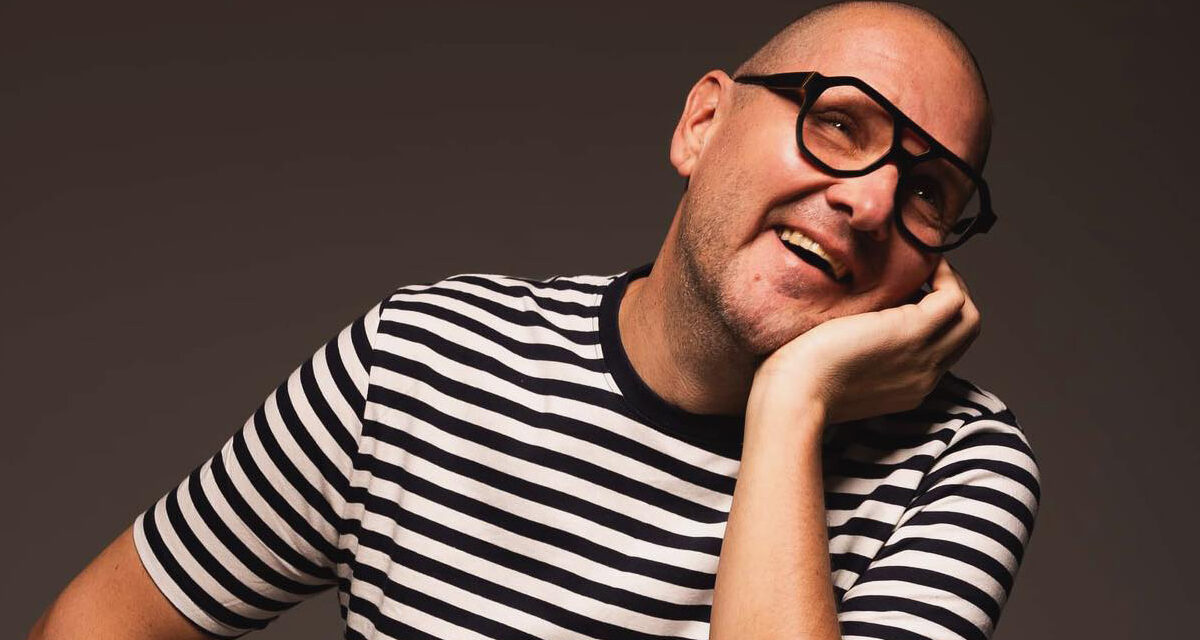A young man entered the editorial office of a newspaper, introduced himself, gave his contact information, phone number, and e-mail address, and stated that he was willing to prove everything he said, even in court. He had something to say about Márk Lakatos. Written by Zsolt Bayer.
About the "child protection" Márk Lakatos. And while he was there, he also presented some of his text messages with this man.
A young man went into the editorial office of a newspaper and unpacked. Because he couldn't bear to see who he liked right now in the role of child protector. This young man did not commit suicide, thank God he would not have had a reason to. He is a healthy young man with normal values and a stable family background, to whom the terrible thing did not happen, because it could not happen. But we'll come back to that later.
Let's start a little further!
I don't know why, but in the homosexual subculture (I have no idea why this should be called any kind of culture, but I don't have a better term for it right now) the "young boy" is some kind of fetish and status symbol. Sandmen want young boys. And, of course, I do not claim that all pedophiles are pedophiles or "ephebophiles" (this is the cover name for pedophilia over a certain age), but I do claim that pedophiles are overrepresented among pedophiles.
The perpetrators of the pedophile cases that have fallen out in the past month alone - from the filthy animal of the kindergarten in Óbuda to the filthy animal of Szigetszentmiklós - are without exception sandy.
There are no such coincidences.
And then let's return to Márk Lakatos. At the end of last year, Márk Lakatos said this to Válasz online – to what else, of course –:
"I never told anyone to be gay. Just as I didn't ask anyone to evaluate my sexual orientation or educate me on anything."
How commendable. And then we look at reality. The young man who walked into the newspaper's editorial office showed what messages Márk Lakatos sent him when he - that is, the young man - was 15-16 years old. The young man clearly indicates from the beginning that he is heterosexual: "a girl is forming", he writes to Lakatos, to which the following answer is received: "It could be more than that. It's a friendly affair." The young man – I say, he is a healthy, normal guy with a normal family background – tells Lakatos intelligently and even more clearly that he is not, writing:
"Everyone's friendship limits are different." When the answer comes: "Borders must be crossed."
Let's stop here for a moment! Let's stop at this miserable, sick, stale cliché, which is one of the most favorite phrases and emptiness of this subculture, this celebrity world. Borders must be crossed. Indeed? And why? And which borders? All limits? And for what reason, for what purpose? So that all sick, perverted animals can freely fulfill their desires?
And how does "cross the boundaries" resonate in the soul of an already vulnerable, eo ipso rebellious teenager? Can this cliché work for a less strong, unstable, disordered adolescent? And anyway, what will the world be like if we cross the borders?
At least I know the exact answer to this last question, because it is now becoming what it is before our eyes. The world of locksmith brands is coming.
But back to the messages.
The normal, healthy response to the locksmith's request to cross the border is: "It's not possible." A little later, the young man, testifying to his incredible intelligence, makes even clearer what is self-evident and natural to every normal person: "I can't change this," he writes to Lakatos, who, giving the answer of the abnormal and sick, first inquires, "what can't you change ”, and when he receives the answer that “on my identity”, he immediately reacts in the manner of the sick wretch: “you can do anything”, I mean change, and anyway, these are just “big words”.
Big words. Of course. In the world of the abnormal, all identities, be they religious, national, or gender, are just "big words." And we see the end result in today's West.
But it doesn't end there. Lakatos turns to the issue of "active" and "passive", which in his abnormal world refers to homosexual roles - I'm about to vomit - and the following exchange of messages takes place:
"Locksmith: I just read that you are active. Could you show how much?
Young Man: Ouch. I am active on the phone.
Locksmith: Is it passive anyway?
Young man: He's active anyway.
Lakatos: Well, you could show it, but live...
Young man: For girls.
Locksmith: Uncsi. That it's only for girls. It's exclusionary. Not fair."
God, how disgusting, how vile this all is.
And after reading all this, let's ask the question: how do we stand with Lakatos' statement that "I never told anyone to be gay. Just as I didn't ask anyone to evaluate my sexual orientation or educate me on anything."
And the most gut-wrenching part of the exchange of messages is when the young man tells Lakatos that he is still a minor:
"Young Man: I'm a little boy.
Locksmith: In what sense?
Young man: In what sense can someone be a little boy?
Lakatos: In what sense do you mean that?
Young man: in what sense do you mean it?
Lakatos: So you said what you thought first?
Young man: In every sense.
Locksmith: Specify.
Young man: In every sense.
Locksmith: And? When can you pull the...?
Young man: My ears?
Locksmith: Also. As the saying goes, head and tail..."
That "and", that is, "so what if you're a boy, when can I pull your dick", well, that's the most characteristic of these miserable, perverted, sick scoundrels. It contains everything you need to know about them.
And then we draw conclusions and ask questions.
The former director of the foster home in Bicske committed all the atrocities he committed with young people of the same age. By abusing - among other things - his position of power. I ask, and I assert: "celebrity", notoriety, fame and money: all are positions of power.
And I don't claim, but I definitely ask: could there have been a young man of a similar age in Budapest's nightlife, in Lakatos' hunting grounds, who was neither as strong nor as determined as this young man, who did not have such an orderly and normal family background, and did it end up being a rope? I don't feel like joking, but I still remember the old Székely joke: "Dad, do fish drink water?" "I don't know if fish drink water, but they have a way to do it, that's for sure."
Lakatos had a way of abusing his position of power to win over such young people.
And then I finally ask: if that was the case, if it only happened to him in one case, then what is the difference between him and the director from Bicske?
Featured image: Márk Lakatos / Facebook













